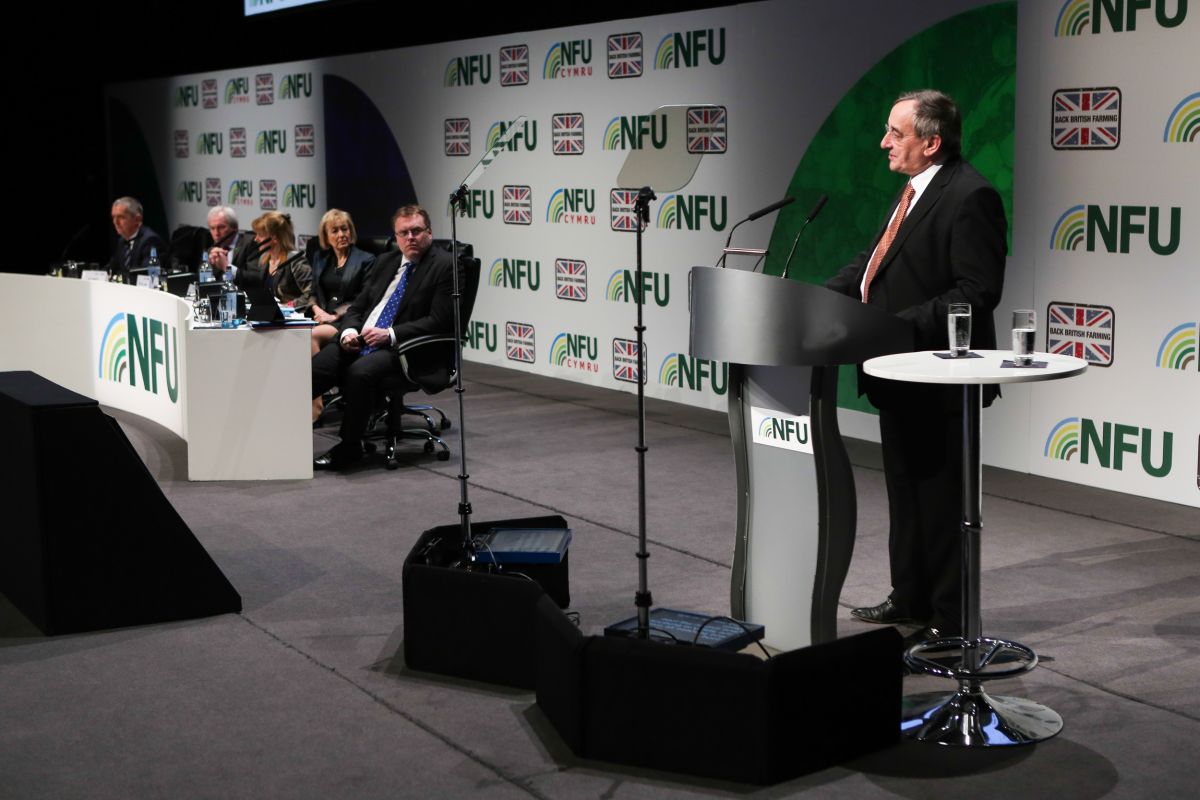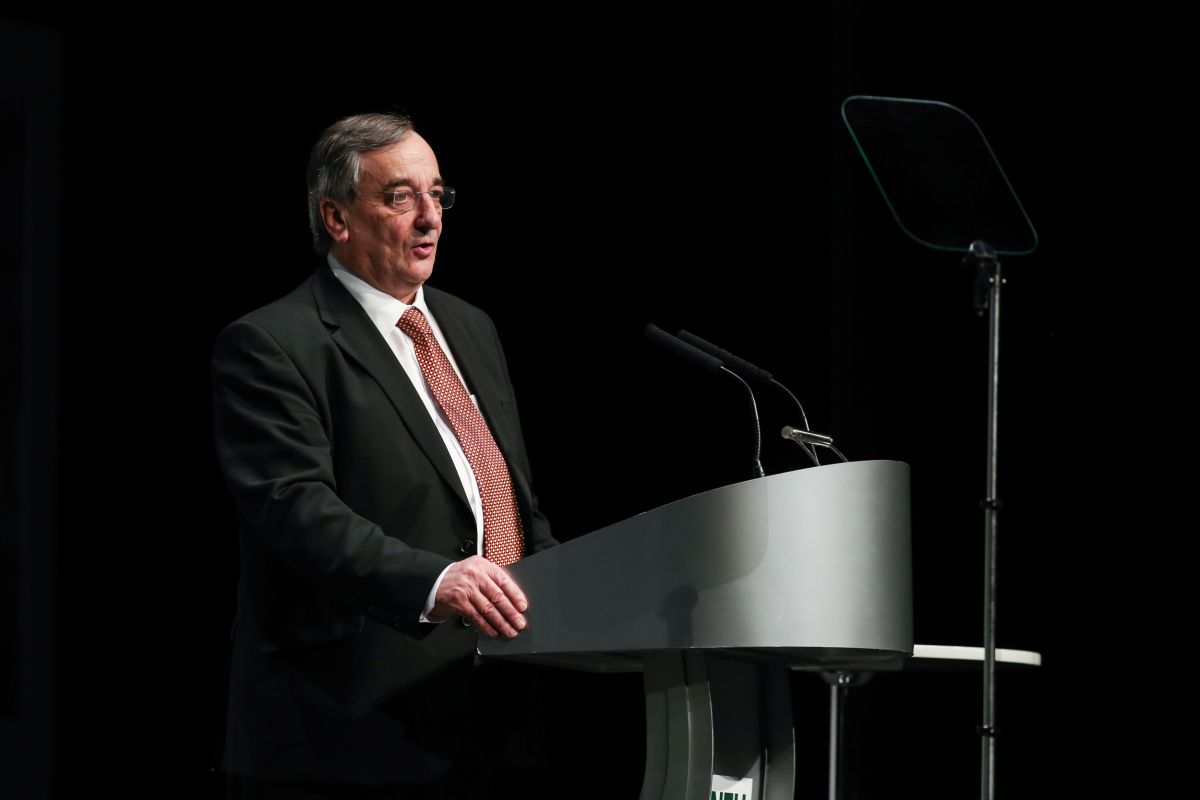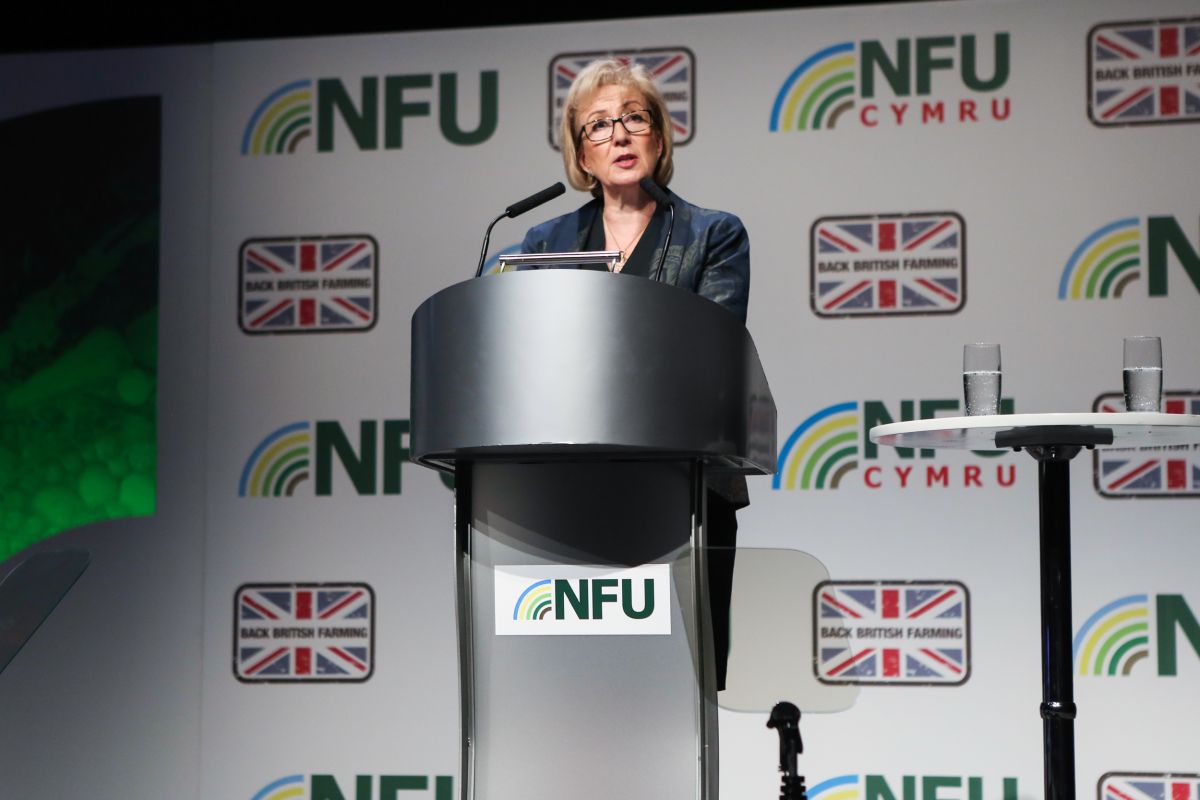
National Farmers Union President Meurig Raymond has called on the Government to come clean on its post-Brexit plans for agriculture.
He told those attending the annual NFU conference that, whilst the Government had promised the financial sector the "freest possible trade" after the United Kingdom withdraws from the European Union, plans for the farming sector were less clear.
His call came as Environment Secretary Andrea Leadsom attended the conference for the first time following her appointment after the EU referendum in June last year.
Mr Raymond said: "The industry still has many unanswered questions," he told the Secretary of State.
"The Government's recently published White Paper was not clear. Regarding agriculture, it said, and I quote, 'continued high levels of market access are in the UK and EU's mutual interest.' The financial sector had a very firm commitment in the same paper of having, and I quote again, the 'freest possible trade.'
"So, Secretary of State, what does that actually mean for farmers?" he asked.
"'Continued high levels of market access are in the UK and EU's mutual interest.' Is that a commitment? Is it a statement of fact?"

"I'm sure many farmers in this room will tell you exactly what it is. It is time for clarity, Secretary of State. The Prime Minister said at Lancaster House that no deal is better than a bad deal. I say to you, Secretary of State, that no deal on trade for agriculture is a bad deal," he said.
No clarity
Despite the NFU President's appeal, Andrea Leadsom said she was unable to provide the kind of clarity he was looking for at the moment, although she said the Government wanted the best possible trade access for farmers and food exporters after the UK left the European Union.
"I appreciate you are looking for clarity on specific issues - such as the future of direct payments, the prospects for seasonal agricultural workers and access to the single market to name a few," she said.
"I want to be clear that, as a major contributor to the UK economy - contributing close to £110 billion - there is no doubt that there will be support for our vital food and farming industry after we leave the EU.
"But I'm not going to stand here today and pre-empt the work the Government is doing to get the best possible deal for the UK. Those negotiations will take time and is, of course, inevitable. But I want you to know that I will fight your corner at every opportunity."

'Most important trading partner'
The Secretary of State said she recognised that 60 per cent of exports went directly to the European Union and that four of the industry's five biggest markets were within the EU.
"The EU is our most important trading partner, a fact that won't change when we leave, and a relationship we are determined to uphold," she said.
"As the Prime Minister outlined last month, we want tariff-free and frictionless cross-border trade with Europe. With zero tariffs and zero non-tariff barriers as our starting point, we are striving for the best possible access for our farmers and food exporters."
Meurig Raymond re-stated the NFU's priorities in creating a post-Brexit future for British agriculture. The first one was unrestricted access to the European market.
"In the long term we should have an ambition to open up new global markets, but when we export about three times more food to Belgium than we do to Brazil, Russia, India and China combined, how do we keep these important trade routes open and ensure a smooth transition to our new trading relationship?"
Lower quality, lower welfare
The NFU President raised the concern felt by many farmers that any new free trade agreements negotiated with countries outside the European Union could open the British market to lower quality, lower welfare food imports.
"We commend the ambition to open up trade with new partners but how, in reality, Secretary of State, will you keep food produced to a lower standard than our own out? Would the British public want us to start importing beef produced using growth promoting hormones? Or chickens dipped in chlorine?" asked Meurig Raymond.
The issue was also raised with the Secretary of State during a conference press briefing.
She was asked: "There seems to be a strong desire to trade with the US post-Brexit. How do you guarantee we don't get a flood of lower quality US meat into the UK?"
Andrea Leadsom replied: "The US is a really important partner for the UK. It's a very clear priority relationship for us. In any free trade arrangement there are two sides to that.
"We have been very clear in our manifesto that high animal welfare standards will be a core part of any international free trade arrangements. I have been very clear that we will not seek to put ourselves in an uncompetitive position by reducing welfare or food safety or food traceability standards. It's a very key unique selling point for the UK. We don't want to do anything to undermine that."
Access to European labour
Another post-Brexit concern raised by the NFU has been the need to secure continued access to European labour.
Meurig Raymond said that the horticulture and poultry sectors, which were reliant on seasonal temporary workers, were already struggling to recruit enough labour to work in the fields and pack houses.
As many as 95,000 workers would be needed seasonally by 2021, he said.
The Secretary of State was pressed on the issue by Guy Poskitt, vice chairman of the NFU's horticulture and potatoes board.
Guy, a Yorkshire vegetable grower, asked her to guarantee that he would still have access to a skilled and available workforce after the United Kingdom left the European Union.
Andrea Leadsom said the Prime Minister had made clear that she was ready to guarantee the continued rights of EU workers already here. Future arrangements were under consideration across Government. It was an issue the Government was well aware of.
Meurig Raymond said that the NFU had joined forces with 74 food processors and retailers with a combined turnover of £92 billion to point out that, without permanent and seasonal workers, it would not matter what any new trade agreement looked like.
"The lights would go out in a our biggest manufacturing sector, food will rot in the fields and Britain will lose the ability to produce and process its own food."
"That would not be a successful Brexit", he said.
